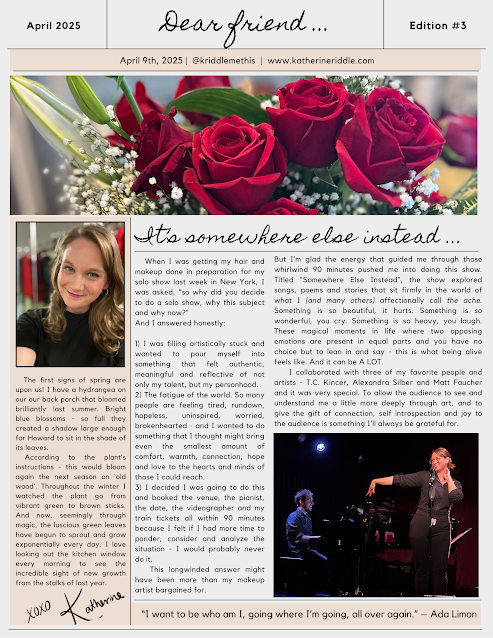Dear friend...
a blog about living artfully
Thursday, October 16, 2025
Wednesday, July 9, 2025
Wednesday, April 9, 2025
Monday, February 24, 2025
Apparently I write poems now...
Busy morning so not as much time for a poetry session but coffee is ALWAYS inspiring to me.
Sunday, February 23, 2025
Subscribe to:
Comments (Atom)
-
Busy morning so not as much time for a poetry session but coffee is ALWAYS inspiring to me. As are cozy socks...
-
When you think of a ‘state of flow’ - what comes to mind? Perhaps an artist or an athlete ‘in the zone’ or maybe an easy going friend who ...













